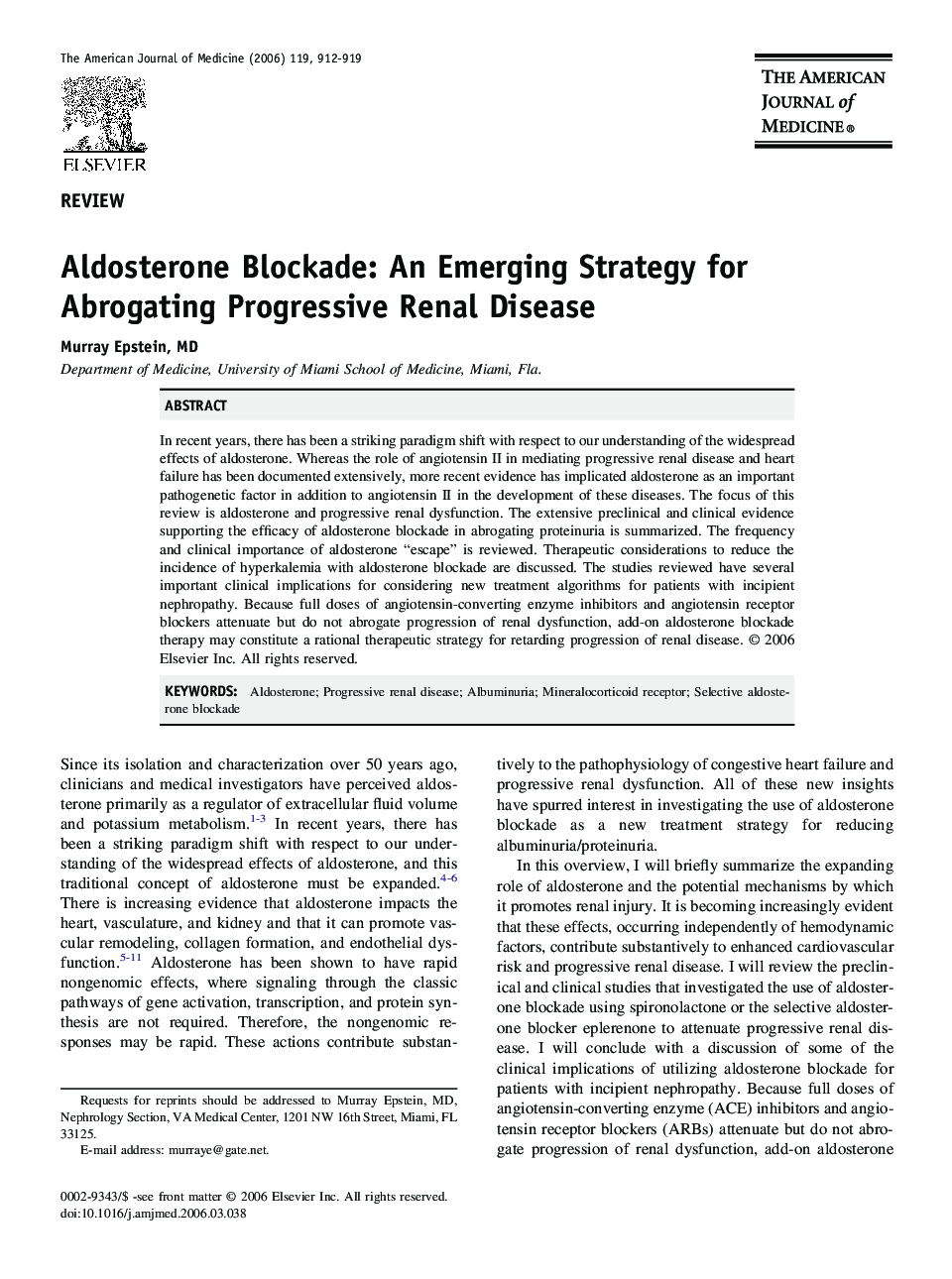| Article ID | Journal | Published Year | Pages | File Type |
|---|---|---|---|---|
| 2721185 | The American Journal of Medicine | 2006 | 8 Pages |
In recent years, there has been a striking paradigm shift with respect to our understanding of the widespread effects of aldosterone. Whereas the role of angiotensin II in mediating progressive renal disease and heart failure has been documented extensively, more recent evidence has implicated aldosterone as an important pathogenetic factor in addition to angiotensin II in the development of these diseases. The focus of this review is aldosterone and progressive renal dysfunction. The extensive preclinical and clinical evidence supporting the efficacy of aldosterone blockade in abrogating proteinuria is summarized. The frequency and clinical importance of aldosterone “escape” is reviewed. Therapeutic considerations to reduce the incidence of hyperkalemia with aldosterone blockade are discussed. The studies reviewed have several important clinical implications for considering new treatment algorithms for patients with incipient nephropathy. Because full doses of angiotensin-converting enzyme inhibitors and angiotensin receptor blockers attenuate but do not abrogate progression of renal dysfunction, add-on aldosterone blockade therapy may constitute a rational therapeutic strategy for retarding progression of renal disease.
